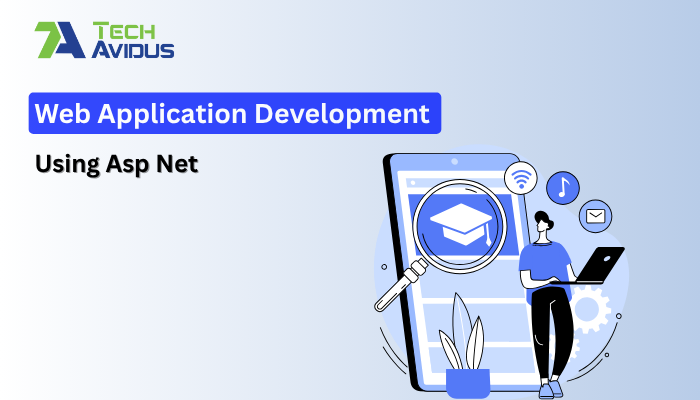
Are you looking to embark on a journey into web application development? If so, you're in the right place. In this extensive blog post, we'll explore the world of web application development using Asp.Net, a powerful and versatile framework that allows developers to build robust web solutions.
Asp.Net, developed by Microsoft, is a popular framework for building dynamic web applications and services. It provides an adaptable and feature-rich environment for creating web solutions, making it a top choice for developers worldwide. Whether you are a beginner or an experienced developer, Asp.Net offers a wide array of tools and features to streamline the web application development process.
Over the years, Asp.Net has evolved to meet the changing web development needs. It started with Asp.Net Web Forms, followed by Asp.Net MVC (Model-View-Controller), and eventually, Asp.Net Core, which marked a significant shift towards cross-platform development. Each iteration brought improvements and new capabilities to the framework.
Now, let's dive into the web application development process using Asp.Net. We'll provide a comprehensive, step-by-step guide that will take you from the initial setup to deploying a fully functional web application.
To get started, you'll need to install Visual Studio, an integrated development environment (IDE) provided by Microsoft. Visual Studio simplifies the development process and provides various tools for building Asp.Net applications.
Once your development environment is set up, you can create a new Asp.Net project. Choose the project type that best suits your needs, whether a web application, web API, or other web-related project. Asp.Net offers a variety of project templates to kickstart your development.
Asp.Net allows you to design your application with a user-friendly interface. You can use HTML, CSS, and JavaScript to create a visually appealing front end. This section will explore the best practices for creating responsive and aesthetically pleasing web interfaces.
Asp.Net enables you to develop server-side logic using C# or VB.NET. You can define your business logic, manage data, and interact with databases seamlessly. We'll delve into the details of server-side programming, including data access, working with databases, and handling server-side events.
It's crucial to thoroughly test and debug your web application to ensure it functions correctly. Visual Studio provides powerful debugging tools to simplify this process. We'll cover various testing methodologies and debugging techniques to help you identify and resolve issues effectively.
After testing, you can deploy your Asp.Net web application to a web server or hosting platform, making it accessible to users worldwide. We'll guide you through the deployment process, covering topics like server configuration, security measures, and best practices for ensuring a smooth deployment.
Asp.Net Identity is a framework for managing user authentication and authorization in Asp.Net applications. It provides a robust and customizable system for handling user accounts, roles, and claims. Learn how to integrate Asp.Net Identity into your web applications for secure user management.
Entity Framework is an Object-Relational Mapping (ORM) framework that simplifies database access in Asp.Net applications. We'll explore how to use Entity Framework to interact with databases, perform CRUD operations, and create efficient data-driven applications.
Asp.Net allows you to create Web APIs for building RESTful services. We'll cover the essentials of Web API development, including routing, serialization, authentication, and building APIs that various clients can consume.
Asp.Net Core is the latest iteration of the framework, designed for cross-platform development. We'll discuss the key features of Asp.Net Core, such as dependency injection, middleware, and building applications that run on different platforms.
To ensure your Asp.Net projects are of the highest quality, following best practices is essential. In this section, we'll outline several best practices, including:
Discover how to structure your Asp.Net projects to maintain clean and maintainable code. We'll explore the benefits of using the MVC pattern and best practices for organizing controllers, views, and models.
Security is paramount in web application development. We'll cover best practices for securing your Asp.Net applications, including data validation, authentication, and protection against common web vulnerabilities.
Learn how to optimize the performance of your Asp.Net applications. We'll discuss techniques like caching, minimizing database queries, and leveraging asynchronous programming to create responsive and efficient applications.
Web application development using Asp.Net is a rewarding journey that offers endless possibilities. The Asp.Net framework, with its rich features and versatility, empowers developers to create secure, scalable, and high-performance web applications. Whether you're building a small project or a large enterprise application, Asp.Net has you covered.
So, if you're ready to dive into the world of web application development, consider Asp.Net as your framework of choice. Start your journey today and unlock the potential of building robust web solutions.
To further expand your knowledge in web application development using Asp.Net, here are some additional resources to explore:
With the information provided in this extensive blog, you're well-equipped to begin your journey into web application development using Asp.Net. Happy coding!
We have the most experienced Top 1% of Tech Talent Teams who can deliver superior technology solutions.
All Rights Reserved. Copyright © 2025 | TechAvidus